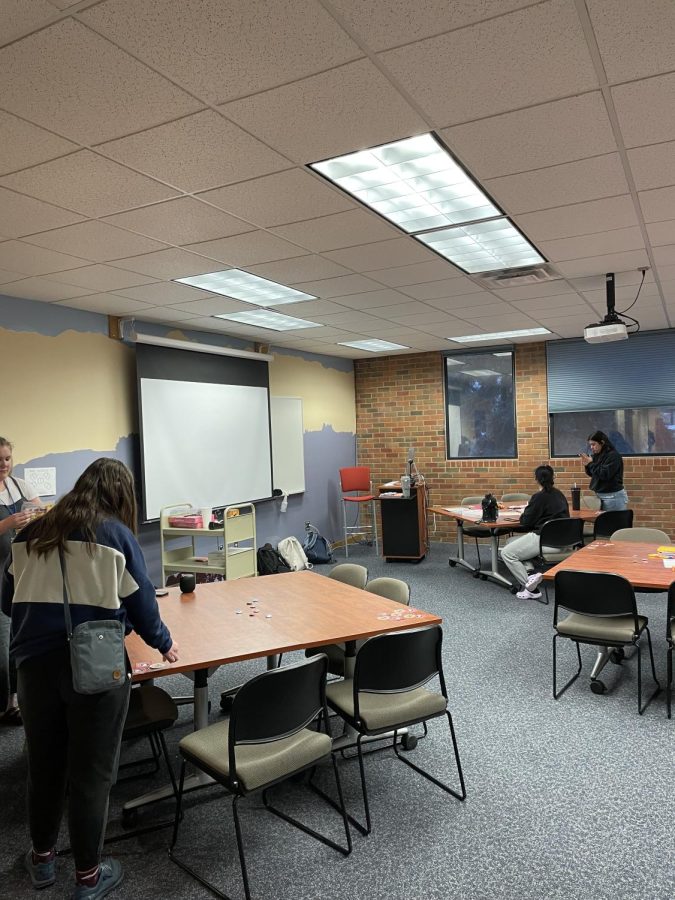Burnout 101: a look into CWU’s self care in academic success event
March 8, 2023
Students sat down at a table opposite their mentors and shared their concerns over popcorn and snacks.
Wildcat Academic Mentoring held an event called “Burnout 101: Self-Care in Academic Success,” to relieve students’ stress and encourage students to come share their problems and seek advice, both personally and academically.
Natalie Amos, one of the student mentors, said “Burnout 101” helped students prepare for finals while providing a place to relax and decompress.
“It’s a time for students to talk about things that have been bothering them, give them a space to make friends, do activities they enjoy and take their mind off of day-to-day homework,” Amos said.
Amos explained the importance of having mentors in the university.
“Mentors can be useful because they provide different perspectives, support and help [students] with their homework assignments,” Amos said. “Studies show that students who have mentors are more likely to be successful, because they feel more connected and have someone looking out for them.”
Natalie Hammill, another lead mentor, said mentoring is not just a temporary aid to students, but provides long-term success.
“Mentoring provides a great way for students to learn various skills that will help them throughout their academic career,” Hammill said. “We talk about many skills: study skills, test skills, time management and self care. I have seen much growth from my students as a result of it.”
A former mentee and current mentor, Olivia Zavala, also addressed the need for new skills.
“Mentoring gives students an outlet to learn skills they may not know,” Zavala said. “Mentoring is something many students need. Some students … lack experience coming into college, especially freshmen and sophomore students.”
There were students who said they had never participated in the mentoring program, but took an interest in it and came to learn more. Caleb Erikson was one of those students and said he knew a bit about the program before attending.
“Mentoring is good for those who need to develop skills and pass said skills onto next generations,” Erikson said. “Mentoring has not yet helped me, because I’m just getting into it, but I certainly hope it will.”
Erikson explained why he wished to be a mentee.
“I seek out mentoring for direction on what to do that is useful,” Erikson said. “I’d like to get the mentors’ experiences, so I don’t have to go to school blindly and be able to figure stuff out.”
Maggie Gatlin was one of the lead mentors, and explained how one could become a mentor.
“One can go about being hired as a student mentor in the spring,” Gatlin said.
She said applications will be posted on the Wildcat Career Network webpage, and anyone is free to apply, so long as they are a student or alumni.
“Mentors can be used as an accountability partner,” Gatlin said. “Someone can come in to get help and have someone to hold you accountable for what you do. We’re also trained in trauma-informed care, so we’re great listeners and like to find what works for our students. We identify needs that you have and build off of those needs to improve you as a student.”


